By Mary Sinanidis.
The catchcry for this year’s International Women’s Day (IWD) is “Inspire Inclusion,” a sentiment perfectly embodied by Emily Dimitriadis.
Juggling multiple roles as a pharmacist, lawyer and currently suspended Darebin City councillor, Emily’s story is one of resilience and advocacy.
In addition to her professional pursuits, she embraces her roles as a mother to a toddler and a baby, all while proudly identifying as an Australian of Greek and North Macedonian descent – two sides politically at odds. As if that weren’t enough to juggle, she also actively engages in community initiatives, such as hosting an International Women’s Day event at Fairfield Bowling Club on Saturday, March 9 at 2pm.
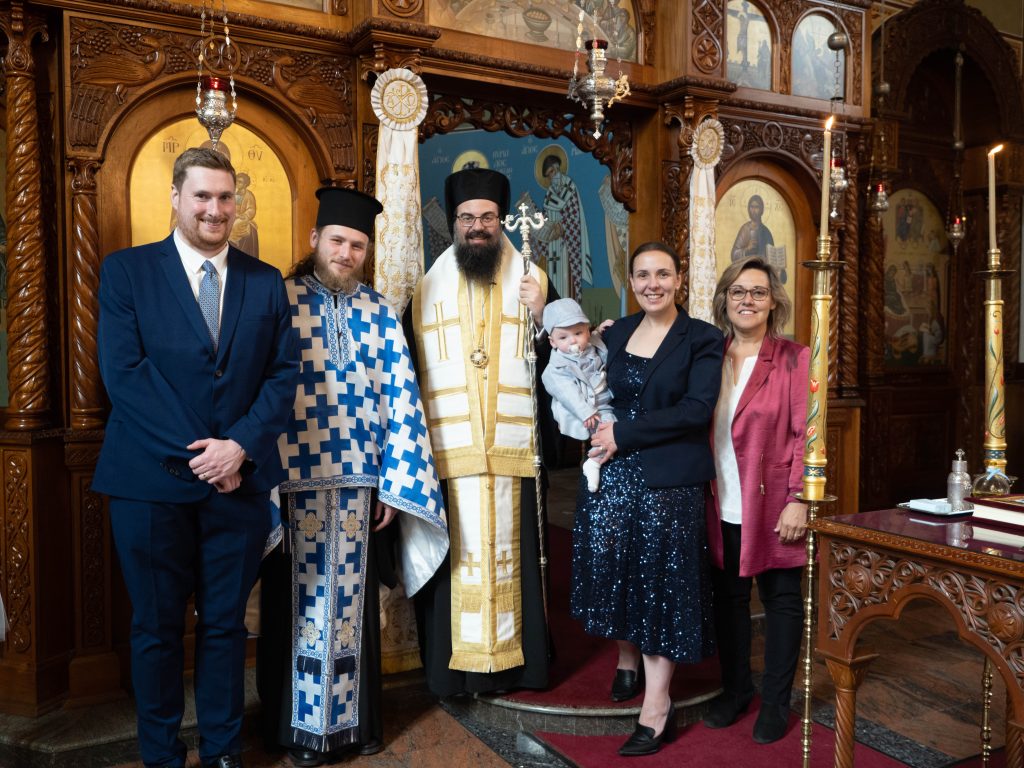
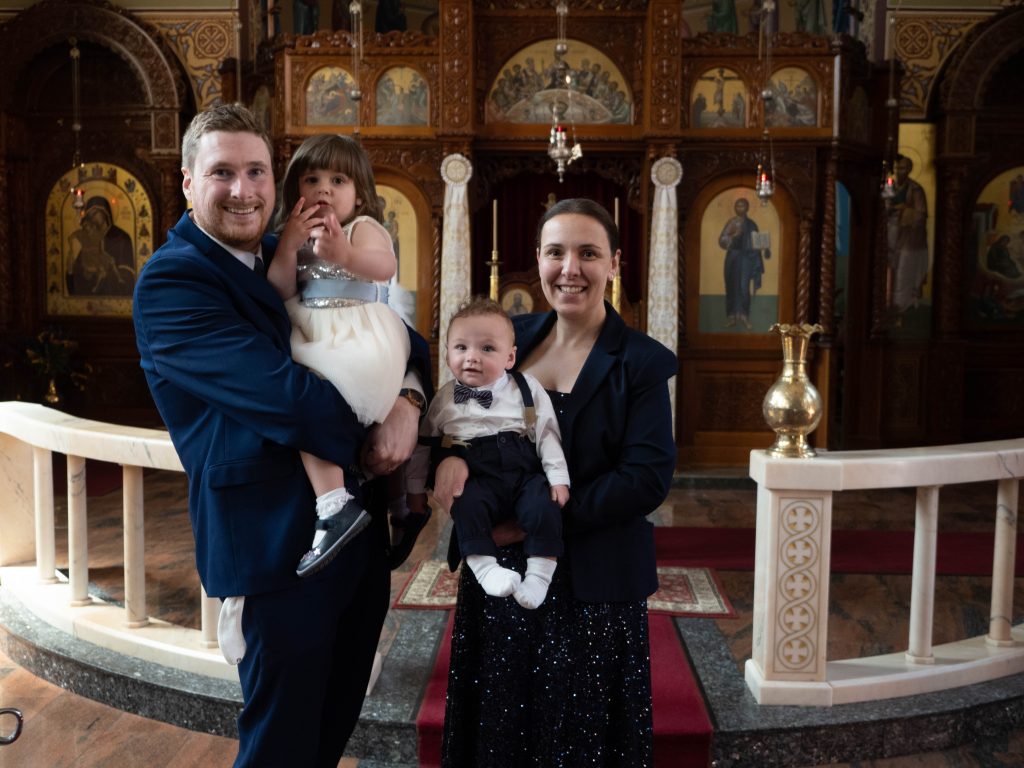
For this event, she teams up with former health minister Jenny Mikakos and women’s rights activist Maria Dimopoulos, along with other migrant women: Former Muslim child bride-turned-activist/restaurateur Hana Assafiri OAM, Afghan soccer player Mursal Sadat and Dr Judy Tang, an advocate of multiculturalism and the LGBTQ community. Through meaningful conversations and shared experiences, Emily hopes to challenge existing norms and amplify women’s voices.
Emily’s voice may be soft, mellifluous and with a rising inflection, but she doesn’t shy when it comes to speaking up for what she believes. (Hence a suspension).
“I would like to see more migrant and refugee women genuinely present and engaged in different political and public domains,” she tells The Greek Herald.
“Because when migrant and refugee women are involved and their voices truly heard, they change the face of gender and intersectional equality. They alter assumptions, expand horizons, and push boundaries.”
Emily believes we should address issues head-on rather than sweep problems under the carpet. She points to many examples where women are overlooked, including the recent figures of the Workplace Gender Equality Agency’s report on the gender pay gap. The data highlighted the ongoing challenge of gender pay disparity in Australian workplaces.
Emily says, “It’s worse for migrant women who don’t have a voice. They aren’t included in societal issues. We need to shed light issues that affect them.”
Bicultural upbringing:
Emily’s journey and interest in helping marginalised communities is deeply rooted in her bicultural upbringing.
“My parents didn’t have the opportunities I had, and school wasn’t the nicest place for them. They couldn’t afford to play sport like I was able to,” she says.
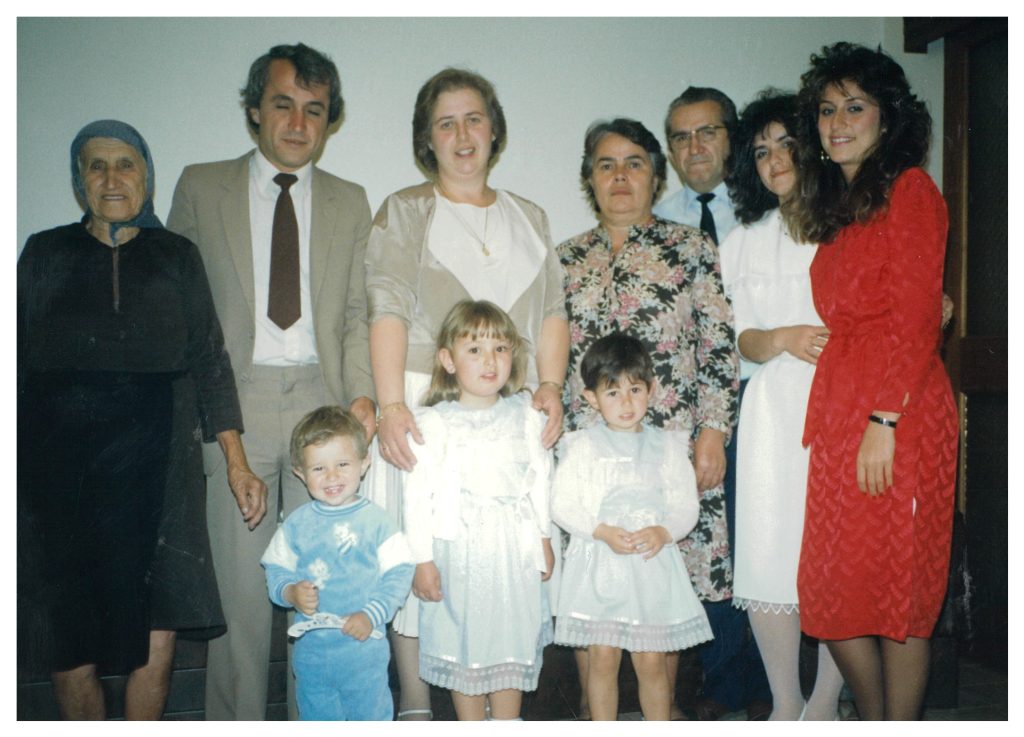
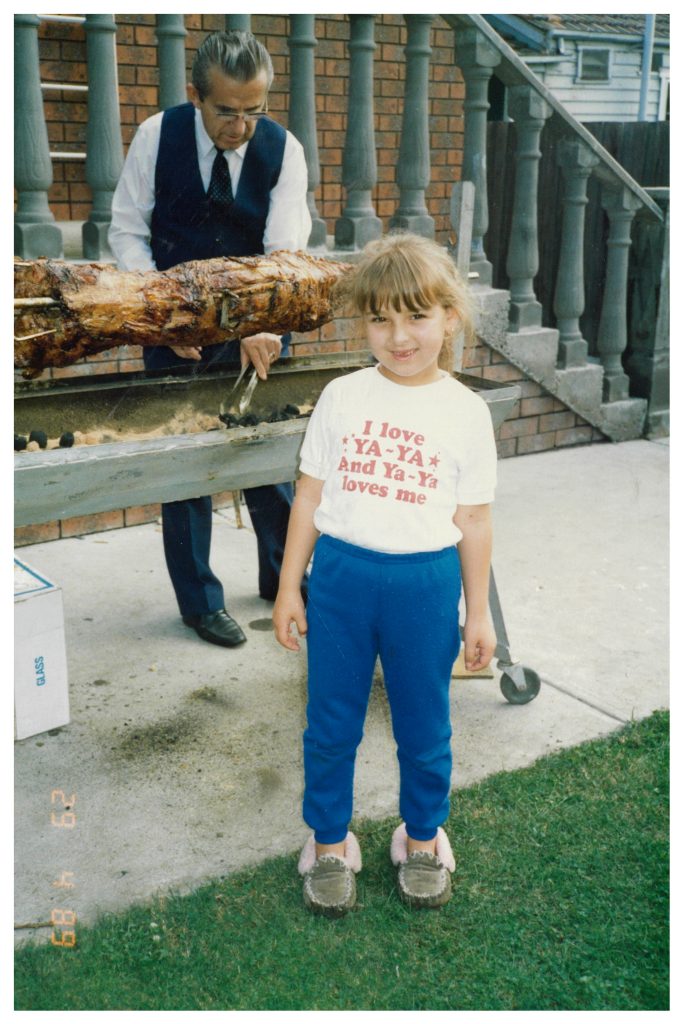
“They had to go to work early, and my mother didn’t finish Year 12 either, and this meant I was the first person to go to university from our family.”
Seeing her own parents’ struggles as they navigated the system made her want to help. But being brought up in a family where she could experience harmony in the home despite being raised in two cultures politically at odds also helped give Emily greater insight into what can be achieved through empathy and understanding.
Her parents, stay-at-home mum Helen and builder Dimitri, came with their families for a better life in Australia.
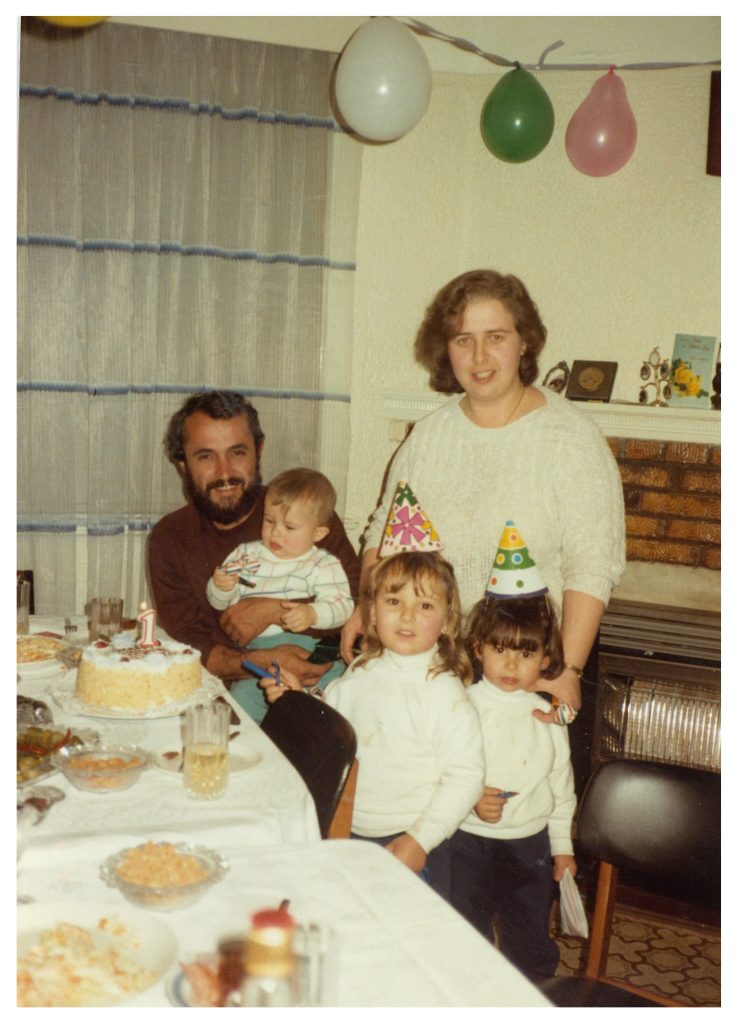
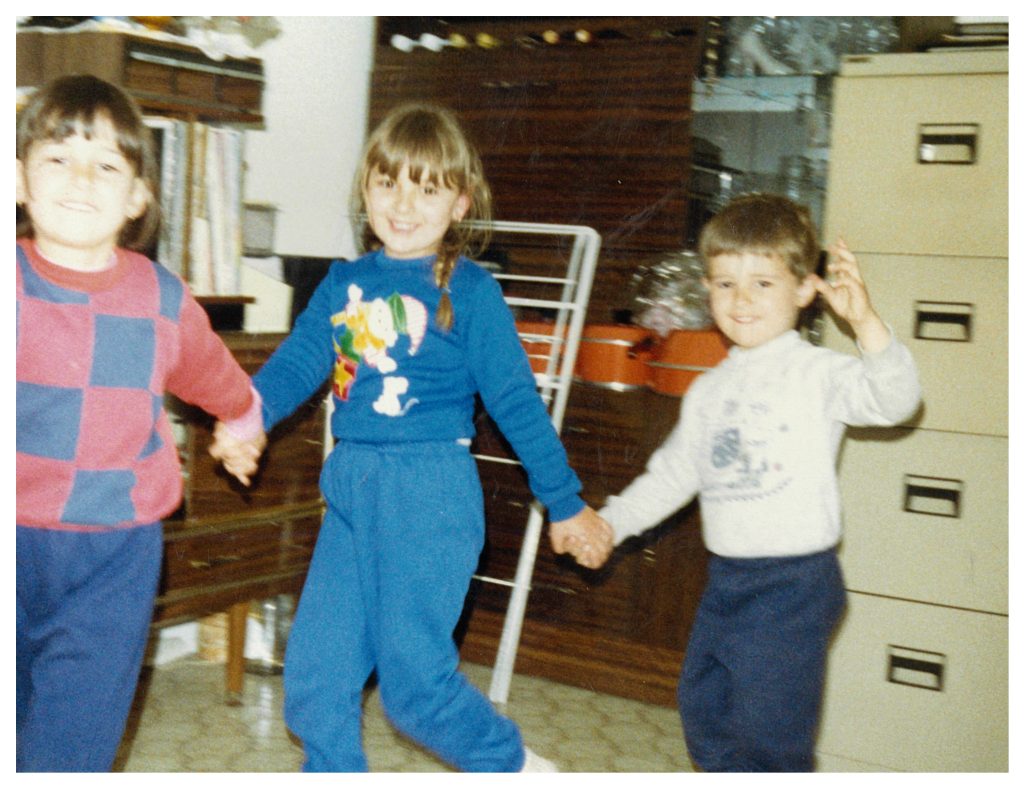
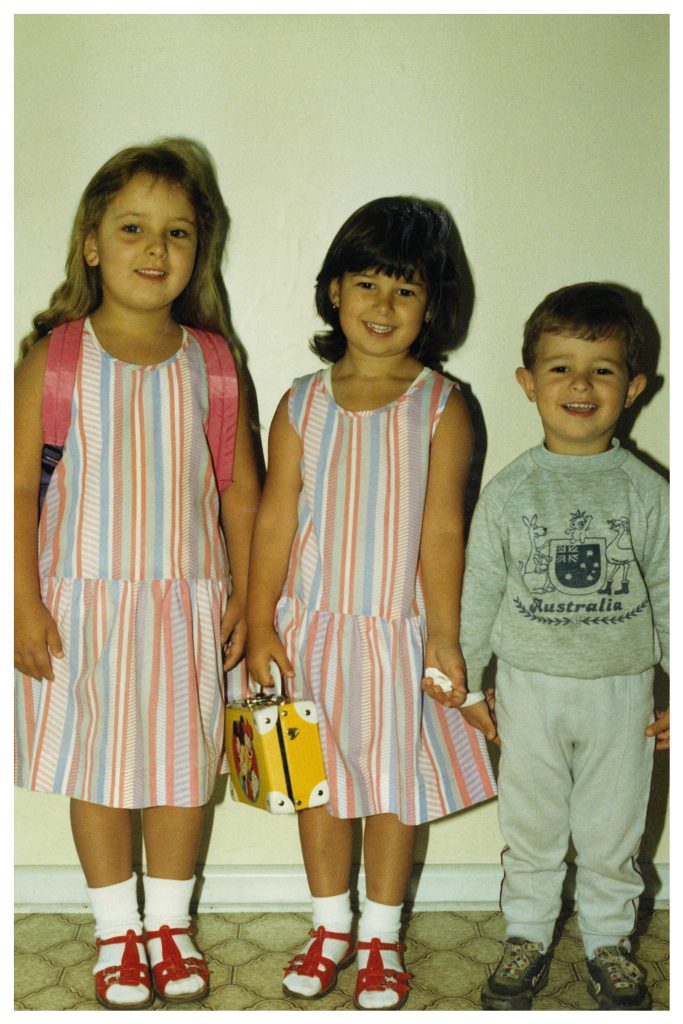
“My parents were both born in Florina but met and fell in love in Australia. They eloped because there was tension in the family – not necessarily because he was Greek, but mainly because he was a little bit older than my mother,” Emily says. “That didn’t go down well on mum’s side, especially with her father.”
By the time Emily, the eldest, was born, any objections to the marriage had faded and normalcy set in with Emily and her siblings happily embracing both sides of her heritage.
“It wasn’t hard to do because many of the customs and traditions are similar,” she says, adding that it was beneficial to be exposed to all traditions.
“We absorbed and enjoyed traditions from both sides of the family. Above all, we were taught to be good people.”
Macedonian was initially spoken with her mother, but she also went to Greek school and couldn’t speak any English when she got to school. Now fluent in all three languages, she remembers acing Greek in Year 12.
Her memories are so positive that she sends her daughter, Cleo, to Greek school every Sunday, and even her Irish husband is learning to speak Greek.
“The more languages you know, the better it is to help people. Knowing additional languages has helped me immensely when working in the emergency wards of hospitals where I can communicate with both Greek and (North) Macedonian visitors. It’s a big benefit, and I’ve never had any issues,” Emily says, adding that at school she had friends from both cultures.
“I’ve always enjoyed learning and being challenged. When I started pharmacy, I saw many people who couldn’t speak English and found it hard to navigate the system. I found that some of them weren’t treated fairly and I felt a law degree would help me assist them.”
Running for Council was just the next step.
“I thought it would be easier to help more people in the community,” she said.
Emily makes it look easy, but it isn’t.
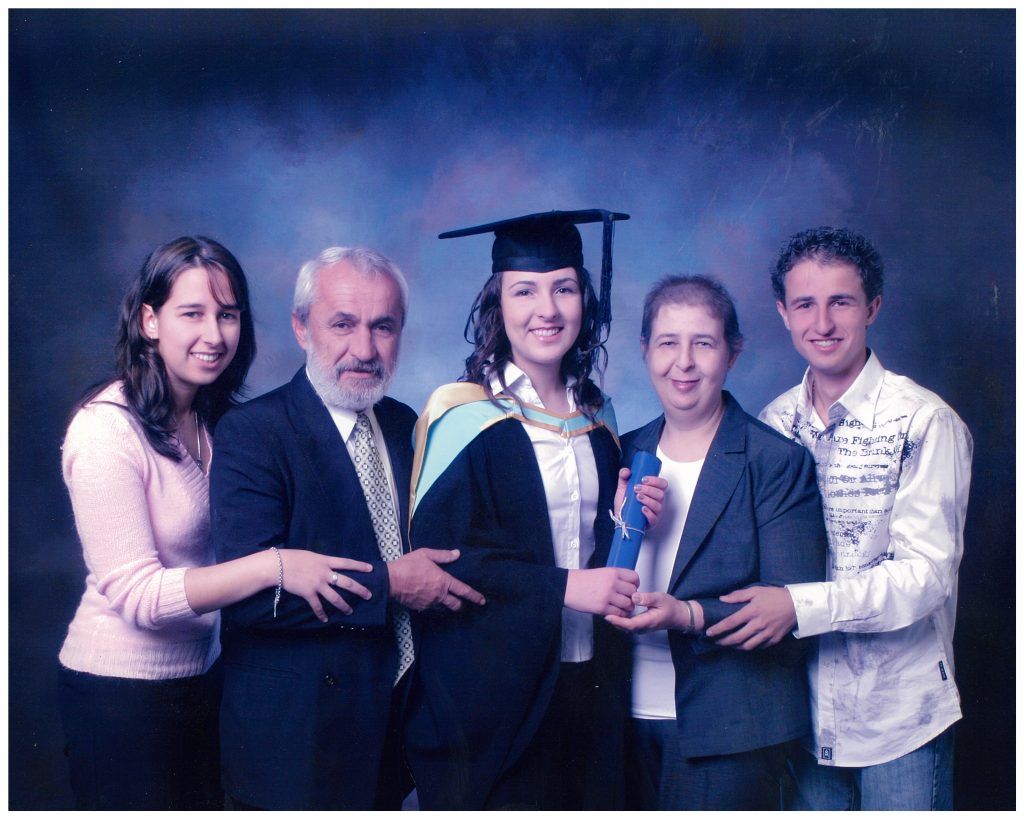
“Studying for a Law degree when my mother passed away was not easy. Nor was it easy giving birth and being in Council at the same time,” she says, admitting that it takes a lot of organisation and support to juggle but it is worth it.
For Emily there is huge satisfaction in helping people. This applies to helping cast recognition on the Greek community’s contribution to the region through the naming of Kalamata Square or helping a person of any racial background navigate the system to better understand their rights.
“I just want to keep doing this, but it isn’t easy juggling all my roles,” she says.

